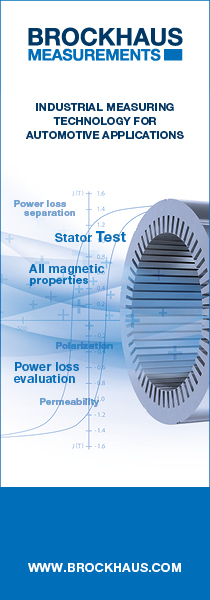Updated 1.12.23
There are limited places for this event. Please sign up early to avoid any disappointment.
Registration open at the bottom
Welcome to the UkMagSoc’ s Ewing Event for 2023.
The Ewing is more than just a technical conference or seminar, it’s an opportunity for the whole magnetics community to come together, listen, learn and discuss what’s happening in their particular magnetic field in addition to catching up with old friends during the heavy focus on social interaction.
As the magnetics world keeps getting larger and larger the UkMagSoc tries to provide a platform for technical discussion and social interaction across a wide range of topics and the Ewing is our end of year event that crosses a number of disciplines.
Last year the focus was on the application of Magnetics in Fusion and this year it’s a nominal focus is on interesting things with Magnets, including Magnet Production, High Field Lab Work and recycling. Everything you ever wanted to know about magnets and more!
We really do hope you will come along to what will be a very informative and interesting day, filled with the chances to learn and touch base with new and old colleagues as well as evening dinner and drinks in Birmingham city centre.
VENUE
Day venue
The Exchange (The Assembly room)
3 Centenary Square
Birmingham
B1 2DR
Tour location
School of Metallurgy and Materials
University of Birmingham
Elms Road, Edgbaston, Birmingham
B15 2SE
Evening venue
Zen Metro
B3 2DF
Travelling by rail
The nearest train station to The Exchange is Birmingham New Street, a short 10-minute walk away. Snow Hill and Five Ways stations are 0.7 miles away, whilst Moor Street is 0.9 miles from the venue. All are within a 20-minute walk of The Exchange.
Visiting from campus?
Hop on the train at University station, stop off at Birmingham New Street, and walk to The Exchange within 20 minutes (service permitting).
Travelling by metro
West Midlands Metro takes you directly to Centenary Square from New Street Station/Grand Central. From here, there are only two quick stops until you arrive at The Exchange (stop Library).
Travelling by bus
Centenary Square is served by several bus routes, and the nearest bus stop is Baskerville House. Plan your journey easily online.
Travelling by car
Centenary Square cannot be accessed directly by car. Therefore, we recommend putting the postcode of your chosen car park into your satnav, rather than The Exchange’s postcode.
The Exchange lies within Birmingham’s Clean Air Zone. You can find out if you need to pay for your vehicle via the GOV.UK website, as well as pay the daily fee (if eligible) after or before your journey.
Parking
There is no on-site parking at the venue, however, you’ll find plenty of pay-and-display parking nearby. The nearest multi-storey car parks are Paradise Circus, Town Hall, and Navigation Street, just a 5-minute walk away (0.3 miles). Street parking is also available at Bridge Street, just 5 minutes away.
The nearest car park to The Exchange with designated Blue Badge parking bays is Cambridge Street. From here, the venue is just 192 yards away. A good alternative is Paradise Circus multi-storey car park (243 yards away).
Travelling by air
Take a train from Birmingham International to Birmingham New Street, before walking to The Exchange. The trip in total should take you under 30 minutes.
PROGRAMME
The event will run from 09:00-23:00 (UK time) and will include talks, a tour of School of Metallurgy and Materials at hte University of Birmingham and a dinner.
DIETARY REQUIREMENTS
Please let us know as soon as possible if you have any dietary requirements we need to be aware of.
DRESS CODE
The dress code for the event is business attire / smart casual.
CONTINUING CONTACT / GDPR
Please note, by providing contact details during registration, you authorise us to
- use these contact details to let you know details of this event, and
- add your contact details to our contact database to let you know about future events that may be of interest.
Please let us know at enquiries@ukmagsoc.org at any time if you do not wish to be contacted in this way. Also, we can remove you from our contact schedule at any point in the future.
PHOTOGRAPHY
We will also be taking photos at the event. If you do not wish to have your photo taken during the event, please contact events@ukmagsoc.org




